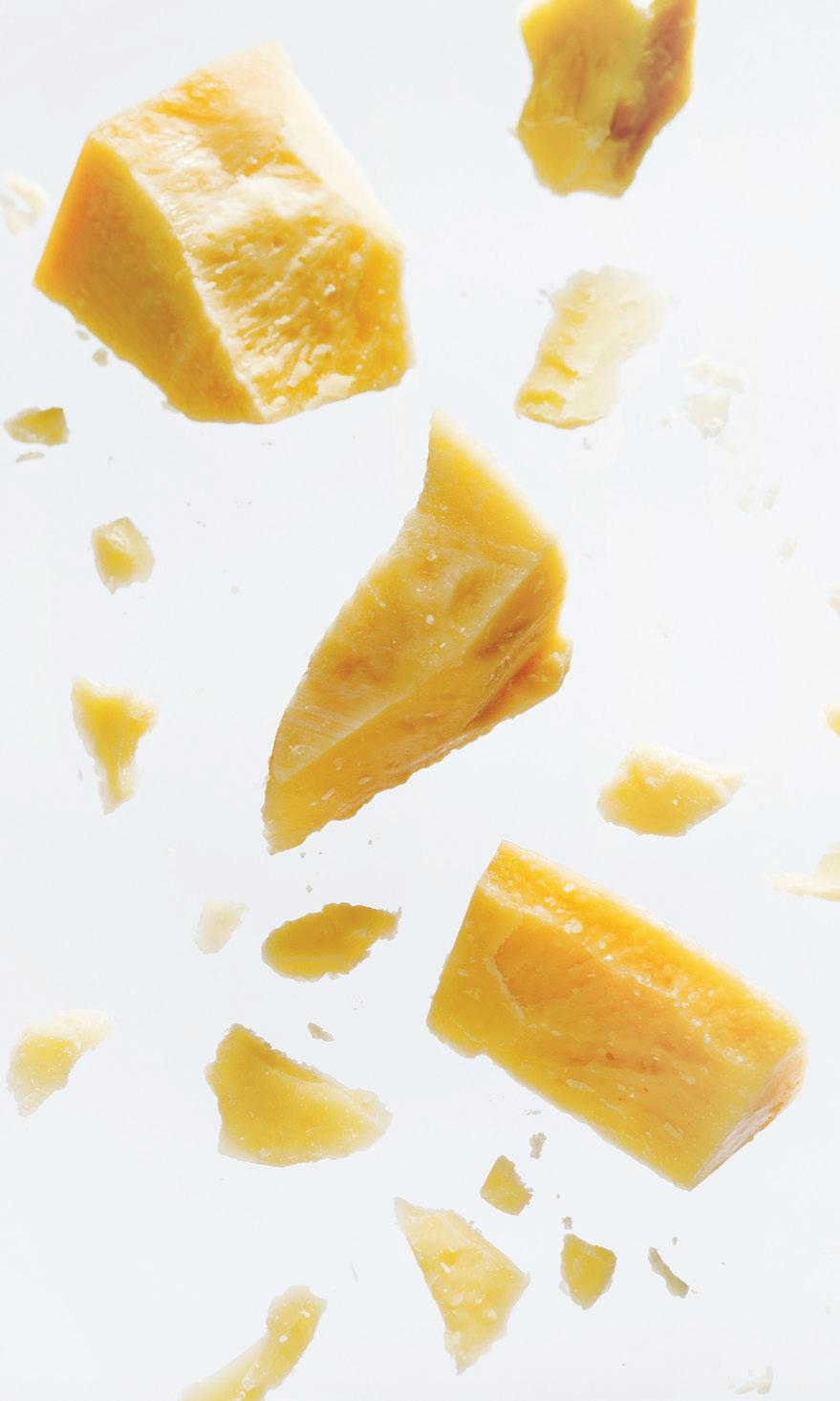
18 minute read
Bega signs deal with SXiQ for tech upgrade
©stock.adobe.com/au/PINKASEVICH
Bega
signs deal with SXiQ for tech upgrade
Bega Cheese has partnered with SXiQ to deliver a technology migration as part of its acquisition of Lion’s Dairy & Drinks business back in late 2020. The acquisition has seen well-known brands such as Big M, Dare, Pura, Dairy Farmers, Farmers Union, Masters, Yoplait, Juice Brothers and Daily Juice come under the Australian dairy and food company’s wings.
As part of this deal, which cost Bega Cheese around $560 million, the technology was required to be transitioned within 12 months. Bega Cheese required the acquired Lion Dairy and Drinks applications, data and processes to be transitioned into its existing or expanded infrastructure. Furthermore, the acquisition principles were based on an application and data separation, with core infrastructure remaining with the seller.
For the Chief Information Officer of Bega Cheese, Zack Chisholm, this project presented both challenge and opportunity — given the integration was to occur whilst both Bega Cheese and the LD&D business were fully operational and required minimal business disruption. Complexities included replacing remote site hosting infrastructure, transition of core business processes and systems, deploying new cloud infrastructure and the migration of previously Lion hosted desktop and cloud-based applications to the Bega Cheese network. On the other hand, a number of opportunities presented, and the LD&D business was able to modernise a number of core-platforms.
SXiQ, which is owned by IBM, was approached as a key partner to support the migration and integration work for core applications. In addition, this partnership led to the successful infrastructure migration and transition of 31 physical sites performing production, distribution and administration duties, ensuring minimal disruption to the business operations of both the LD&D and the Bega Cheese businesses, within the required completion time of 12 months.
SXiQ, together with the Bega Cheese IT team, developed a plan which was underpinned by some core principles to ensure the migrated and integrated systems performed equal to or better than the state they were in prior to the acquisition.
SXiQ partnered with Bega Cheese on end-state design, migration planning and ultimately execution for significant parts of the program, with the scope encompassing:
Migration of mission-critical applications, databases and their associated backups • Modernisation of numerous applications, delivering improved system performance and security compliance. • Implementation of a prod and non-prod AWS accounts and
Landing Zone to house all LD&D workloads, which also included the implementation of a continuous integration and continuous deployment toolset and workflow built on
Cloud Formation, Ansible, Jenkins and GitHub. • The migration of remote site systems from 31 physical sites across almost every state and territory in Australia, which included 13 production sites. • Integration of mission-critical applications and users into
Bega Cheese’s core security and identity platforms. • Cloud cost optimisation strategies to ensure intelligent and efficient consumption of cloud resources to support the newly acquired business. • Uplifting the cloud ops team to ensure Bega Cheese IT incorporates true DevSecOps into its core capability supporting this new platform.
A project of this scale, complexity and duration required strong governance so both Bega Cheese and SXiQ immediately mobilised a joint Integration Management Office (IMO) with both leadership, architecture and project teams. The IMO and project teams ensured transparent, efficient and closely integrated delivery of the program, amid the fast-moving BAU landscapes. In parallel, delivering timely, coordinated organisational change and communication ensured the successful wave-by-wave activation of systems. This also meant employees were well supported in an emerging One Bega culture, so team members were aware, prepared and assisted through the changes, resulting in positive experiences.
Fast forward 12 months with the entire scope delivered, SXiQ said the project is delivering improvements to application performance and systems availability.
SXiQ CEO John Hanna said, “Our experts executed deep analysis, strategic thinking and detailed planning to ensure the successful migration of Lion to Bega Cheese’s existing infrastructure.
“By uplifting infrastructure, cloud management tooling and practices, SXiQ has enhanced management of Bega Cheese’s cloud assets, improving consistency, security and reducing time to deploy cloud infrastructure in the future.”
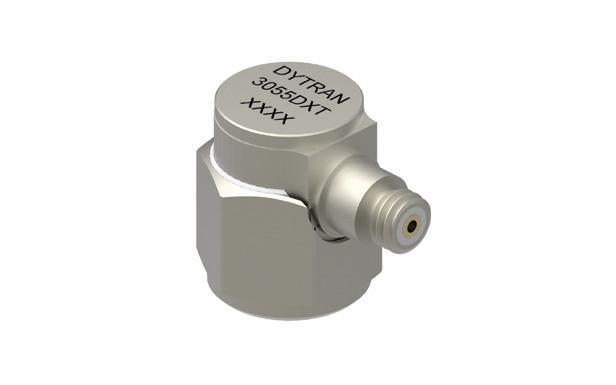
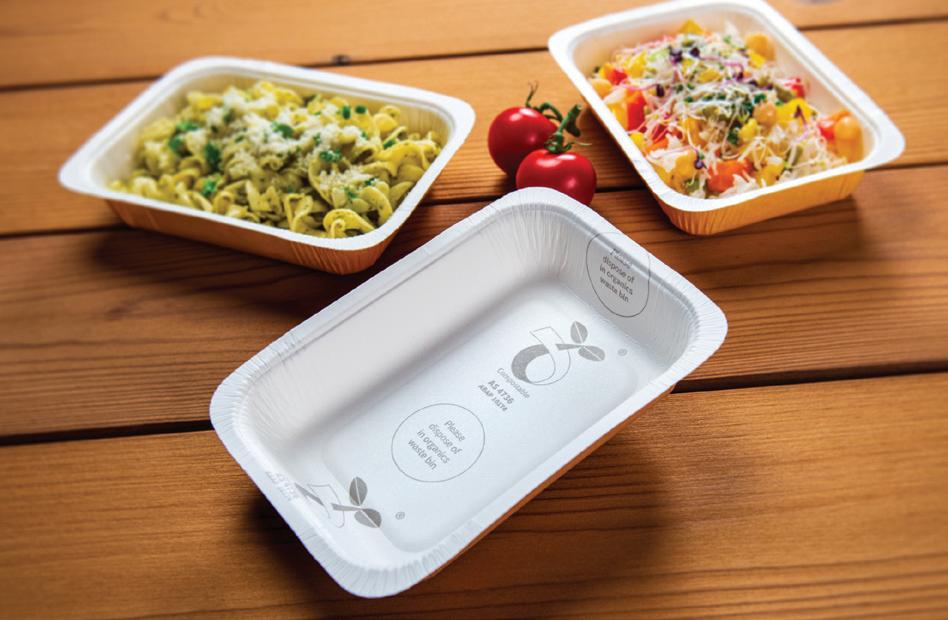
Compostable paperboard packaging
Australian food packaging manufacturer Confoil and BASF have developed a certified compostable, dual ovenable paper tray for packaging of ready-to-eat meals.
The DualPakECO trays are made of lightweight paperboard and coated with BASF’s biopolymer ecovio PS 1606, a partly bio-based and certified compostable biopolymer developed for coating food packaging made of paper or board. Performance regarding processing, sealing, printability and strength is claimed to be on same level as conventional PET food trays.
The trays are certified according to the Australian standard AS4736-2006 and food contact approved according to international requirements. They can be used for ready-to-eat meals like lasagne, curries and stir-fries available as cold or frozen in supermarkets as well as for catering and take-away from restaurants.
The trays are designed to extend the end-of-life options for paper-based packaging by being organically recyclable: they can be commercially composted with the organic waste collected in organic waste bins. Thus the new packaging solution supports organics recycling of food residues and food-soiled packaging, which increases the diversion of food waste from landfill and incineration.
This certified compostable solution provides an alternative to conventional PET packaging for ready-to-eat meals: the trays can be heated in conventional ovens and microwaves, can be chilled or frozen. They show good barrier properties against fats, liquids and odours, helping to preserve freshness and flavours.
Composting trials have shown that the trays break down into water, carbon dioxide and nutrient-rich compost within four to six weeks under commercial composting conditions.
The paperboard can easily be formed and allows for printability. It is lightweight yet rigid enough for in-line production facilities. It also offers secure sealing across a variety of film substrates and machinery. The paper tray is coated with ecovio PS 1606 in a mono-layer extrusion process. Due to its good migration barrier properties the BASF biopolymer also enables the use of recycled paper in food applications.
The packaging solution is suitable for organics recycling such as the Australian FOGO (Food Organics and Garden Organics).
Confoil Pty Ltd
www.confoil.com.au
High-temperature IEPE sensors
The Dytran Instruments 3055D and 3056D high-temperature IEPE (integrated electronics piezo-electric) sensor model series feature true base isolation.
The 3055D7-D10, D13, D14, and 3056D9D14 models feature an extended operating temperature range of 163°C for use in higher temperature testing environments.
The models include the standard performance features found in the original series. The 3055D and 3056D families are characterised by low noise, high resonant frequencies (>25 kHz), a tight sensitivity specification of ±5%, and a frequency response of 1 Hz to 10 kHz. The welded titanium housing yields a durable, yet lightweight product suitable for modal response and shaker control.
Both sensor series feature a wider hex design for ease of installation.
The 3055D series features a side 10–32 radial connector, while the 3056D Series features a top 10–32 axial connector.
Suitable for many general-purpose applications, both series have optional TEDS capabilities available.
Metromatics Pty Ltd
www.metromatics.com.au
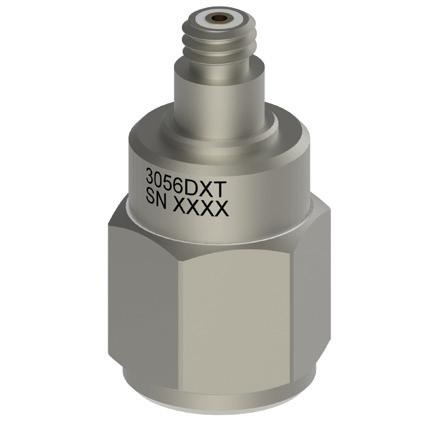
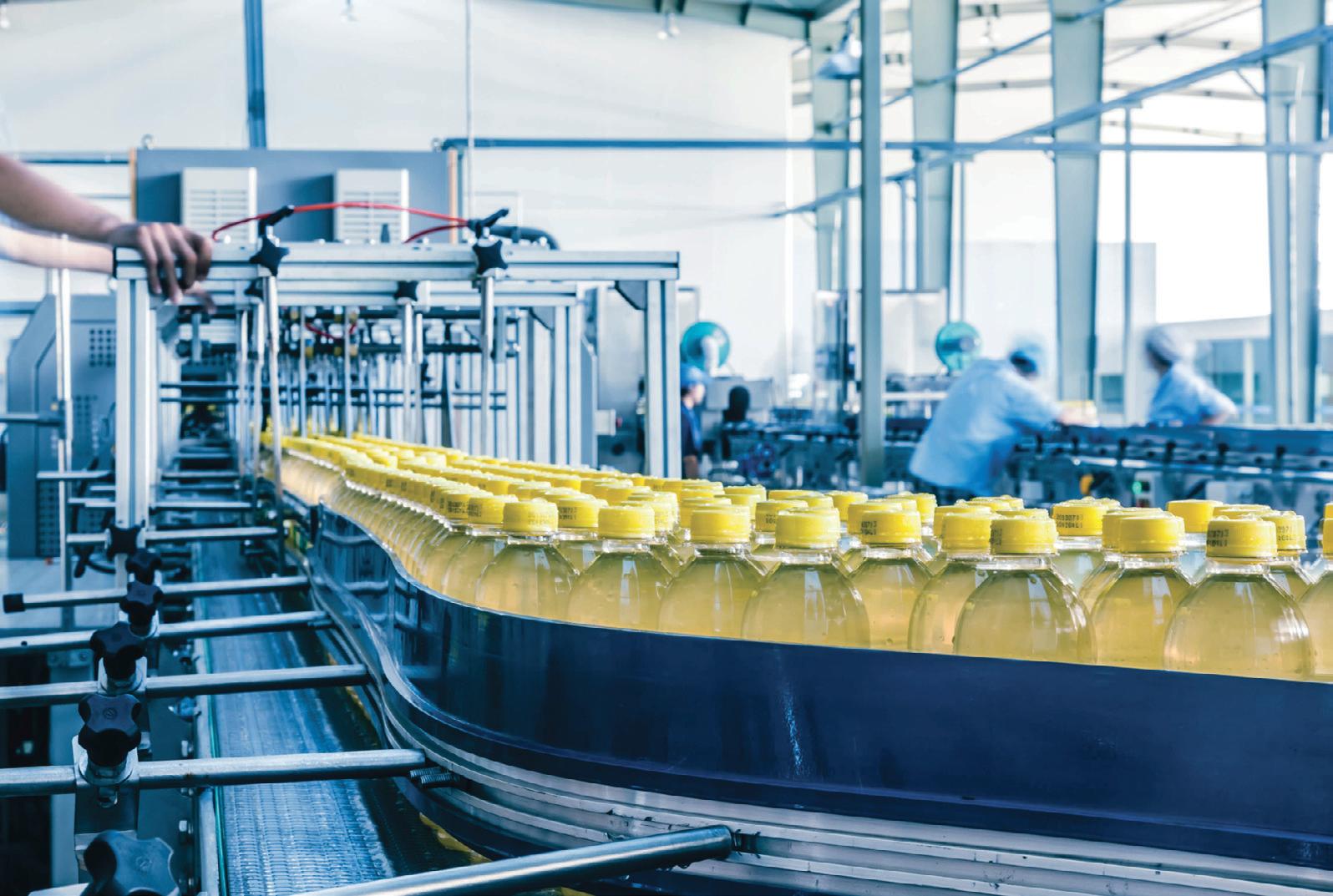
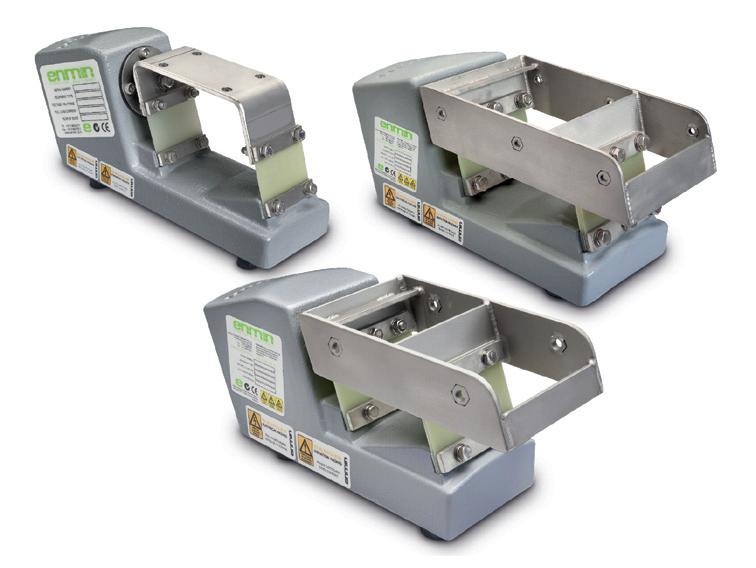
Electromagnetic drives for production lines
Enmin’s new generation drives are designed to energise production lines.
Manufactured in Australia, the electromagnetic drives offer a unique handling method for controlling the flow of food products, ingredients and bulk material. Products can be screened, sized or metered to ensure a smooth, uniform and fully variable flow.
With minimal moving parts, next to no ongoing maintenance and low energy consumption, the drives can provide a low-cost method of product handling. They are designed and constructed to meet the rigorous requirements of the food and pharmaceutical industries such as maximum hygiene, ease of cleaning and continuous 24/7 operation.
The cyclic operation is controlled from a range of electronic controllers that will vary the feeding rate in a manner to suit the specific application enabling high-speed filling. The controllers are available in different enclosures or as standalone for incorporation into central panels.
With reduced energy consumption, Enmin’s new generation drives are designed to ensure a higher conveying speed can be achieved to match the performance of other production line components.
Installation is relatively easy and straightforward, with a wide range of drives available to suit most requirements and applications. The drives are available with either an epoxy or a recently introduced Teflon coating. The Teflon coating provides greater cathodic protection thereby eliminating surface rust, making it a suitable surface finish for a food environment.
The Teflon is fully FDA approved; its 40-micron surface coating means that it doesn’t suffer from chipping that can occur on painted models. This makes it suitable for use on mobile equipment that is susceptible to knocks and bangs as it is moved.
In addition to the food industry, the electromagnetic drives are suitable for any industry that handles dry bulk material, processed products or parts.
Enmin Pty Ltd
www.enmin.com.au
Inline vacuum filler
JBT Corporation’s PLF International has launched its all-new PLF Virtus Inline Vacuum Filler. The new range of linear vacuum filling machines is designed specifically to handle a wide range of milk-based nutritional powders including infant formula and specialised medical nutrition.
Developed by PLF’s team in the UK, the solution delivers up to three times higher throughput per head than previous machines with its new patentpending nozzle design.
The design — offered at 1, 2, 3 and 6 head models with speeds of up to 180 cans/min — results in reduced changeover and cleaning times, maximised yield and reduced operational costs for the users.
Compared to auger filling systems, PLF’s vacuum filling system has no moving parts in contact with the product, which eliminates any risk of product contamination, as well as the possibility of powder breakdown during filling.
JBT
www.jbtc.com
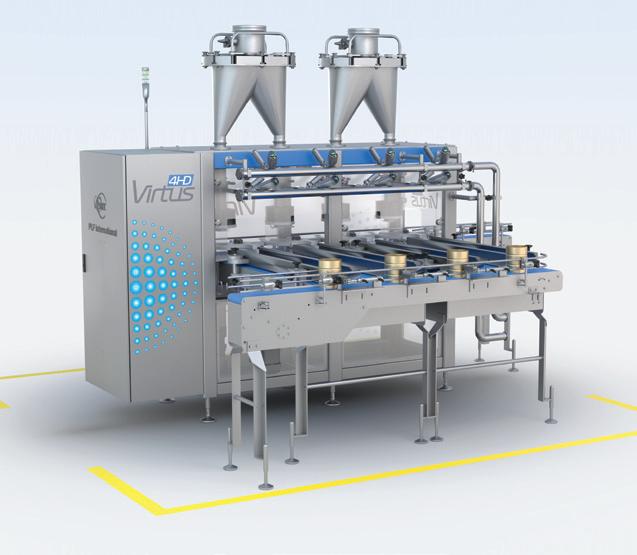
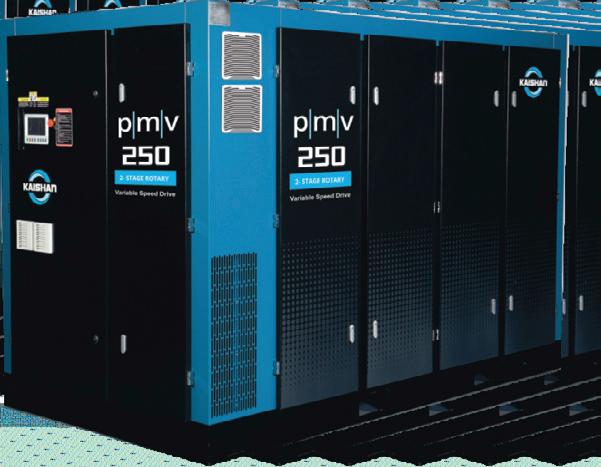

Ingredient cutting machine
GEA’s CutMaster Generation 3 bowl cutter is suitable for cutting, mixing and emulsifying. It can be used for preparing different kinds of sausage, a wide range of poultry, fish, plant-based, vegan and vegetarian products as well as processed cheese. With a small footprint, it comes with integrated AC drive technology to increase the machine’s flexibility.
A reinforced machine frame and knife shaft bearing arm is designed to reduce vibration. The product’s hydraulic unit ensures more convenient adjustment and simpler maintenance.
On the hygiene front, improvements span a reduction in hidden voids, new door and cover seals as well as an additional access flap — all of which contribute to a cleaner environment and easier washdown. The machine meets 3-A sanitary standards and optional hygiene packages are available to meet customers’ requirements.
The unit is equipped with an upgraded control system, including a new standardised user interface employed on all other GEA equipment, such as mixers and grinders. The software has features such as heating and cooling options as well as an optional offline recipe editor which lets customers export recipes to a PC for adjusting before returning them to the system.
The optional PerformancePlus maintenance system uses condition monitoring to measure machine performance. With this information, users can plan maintenance schedules, improve machine uptime and increase productivity.
The machinery is available with or without a vacuum. Using a vacuum helps create a finer product with a more satisfying taste and colour as well as fewer air bubbles and jelly deposits, contributing to a longer shelf life. The product comes in four sizes — 200, 325, 500 and 750 L — and different performance levels, to be used in varying functions.
GEA Group
www.geagroup.com.au
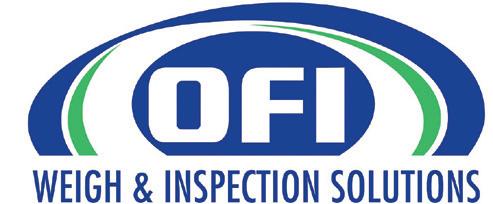
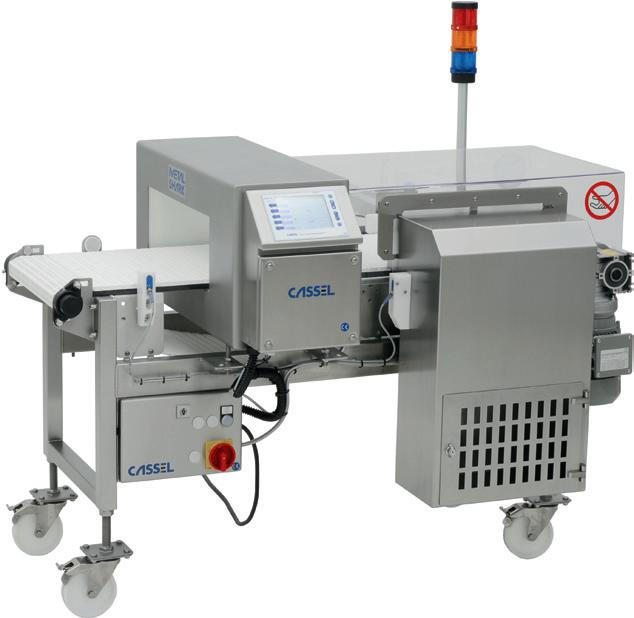
SHARK-BRC METAL DETECTOR
OFI design and locally manufacture the SHARK-BRC metal detector utilising the German engineered Shark series metal detector sensor head. Cassel-Inspection have developed the Shark series over the past 25 years and have the most advanced detection capability currently available.
The SHARK-BRC was developed to ensure our customers have the highest level of detection capability and safety whilst inspecting their products. The SHARK-BRC complies with all food safety standards including HACCP and BRC compliance.
Our SHARK-BRC is supplied with the following features, as standard; • Fully enclosed inspection tunnel • Failsafes to include, reject verification, bin full, bin door open, pack block sensors, low air, rejecter fault, conveyor speed control and reject tracking • Intralox modular belting system, FDA compliant and heat resistant up to 120° • Stainless steel design for wash down applications, including a large lockable bin with inspection window • Intuitive user interface with auto setup, user log in levels and data recording Our Metal Detectors are manufactured in Melbourne and supported throughout Australia by our local service support teams. For more information, please contact our office on 1300 989 079 or email: sales@ofiinspection.com.au
Discharge station
The Syntegon Distribution Continuous Slide (DCS) is a flexible discharge station for round cookies, crackers and biscuits. The modular discharge system consists of one or more stations arranged one behind the other. These are equipped with belt slides for gentle handling, minimising mechanical stress and thus reducing product breakage and loss. Providing pack-style flexibility, the unit distributes cookies onto belt legs for packing them flat or on their edge into pile, slug or tray packs. Furthermore, the system’s guard-free design provides operators with unrestricted process visibility, safe accessibility and easy cleaning.
Cookies, biscuits and crackers are taken from the cooling conveyor and are continuously distributed to the leg belts. They are neither pushed nor dropped but slide over the belts and are thereby protected from any mechanical stress. This reduces product loss and leads to efficiency gains, especially when handling sensitive products.
The higher the speed of the belt slide, the more cookies are transferred to downstream leg belts by the DCS. On the individual legs, a further belt slide arranges the straight product stream into an S-shape. This arrangement ensures the cookies and crackers are evenly distributed across the entire width of the belt, preventing them from wedging or overlapping. A homogeneous product stream is created, providing a constant feed to the packaging machine.
Other features include flexibility for varying formats and changing production output, and easy cleaning thanks to the vibration-free design.
Syntegon Technology Singapore Pte. Ltd
www.syntegon.com
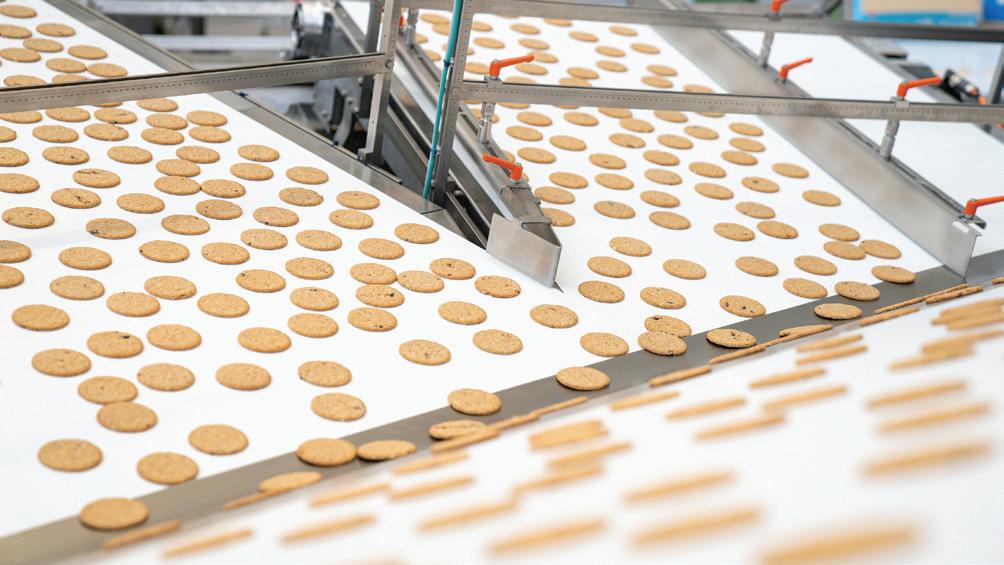

ADVANTAGES:
Early leak detection Easy hose changes Pump thick sludge easily No corrosion issues No messy oil filled casing Only one wearing part Very easy servicing
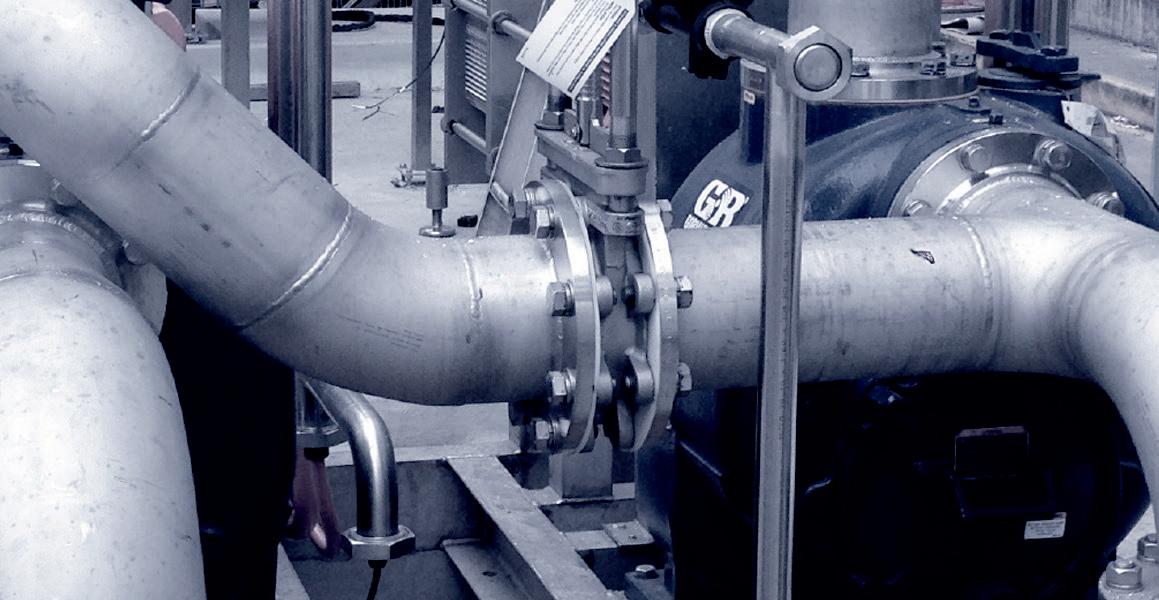
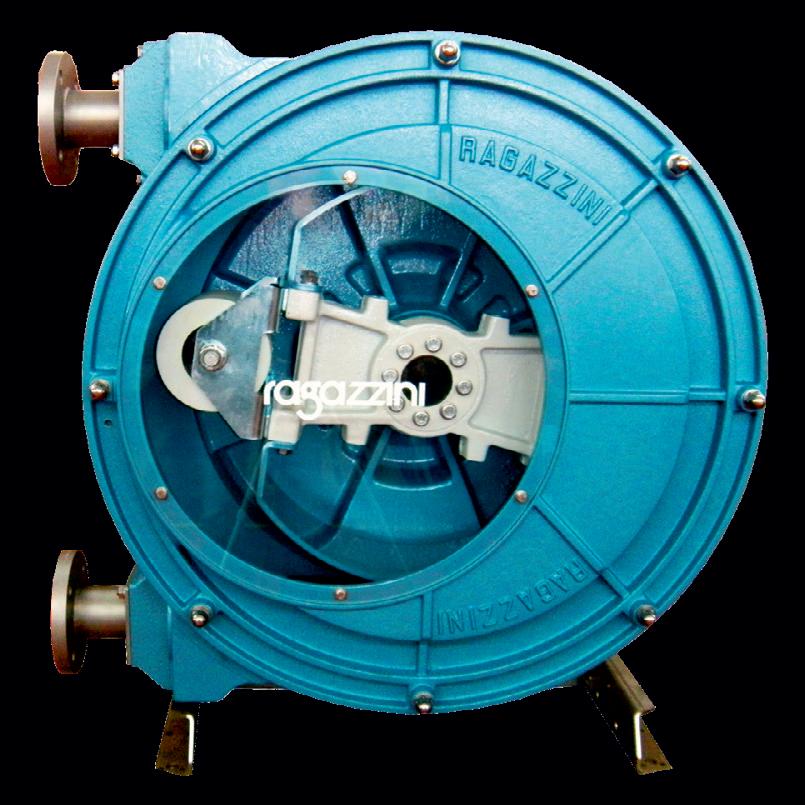
(02) 9898 1800
sales@HydroInnovations.com.au www.HydroInnovations.com.au
SIRIUS industrial control — control, command & monitor
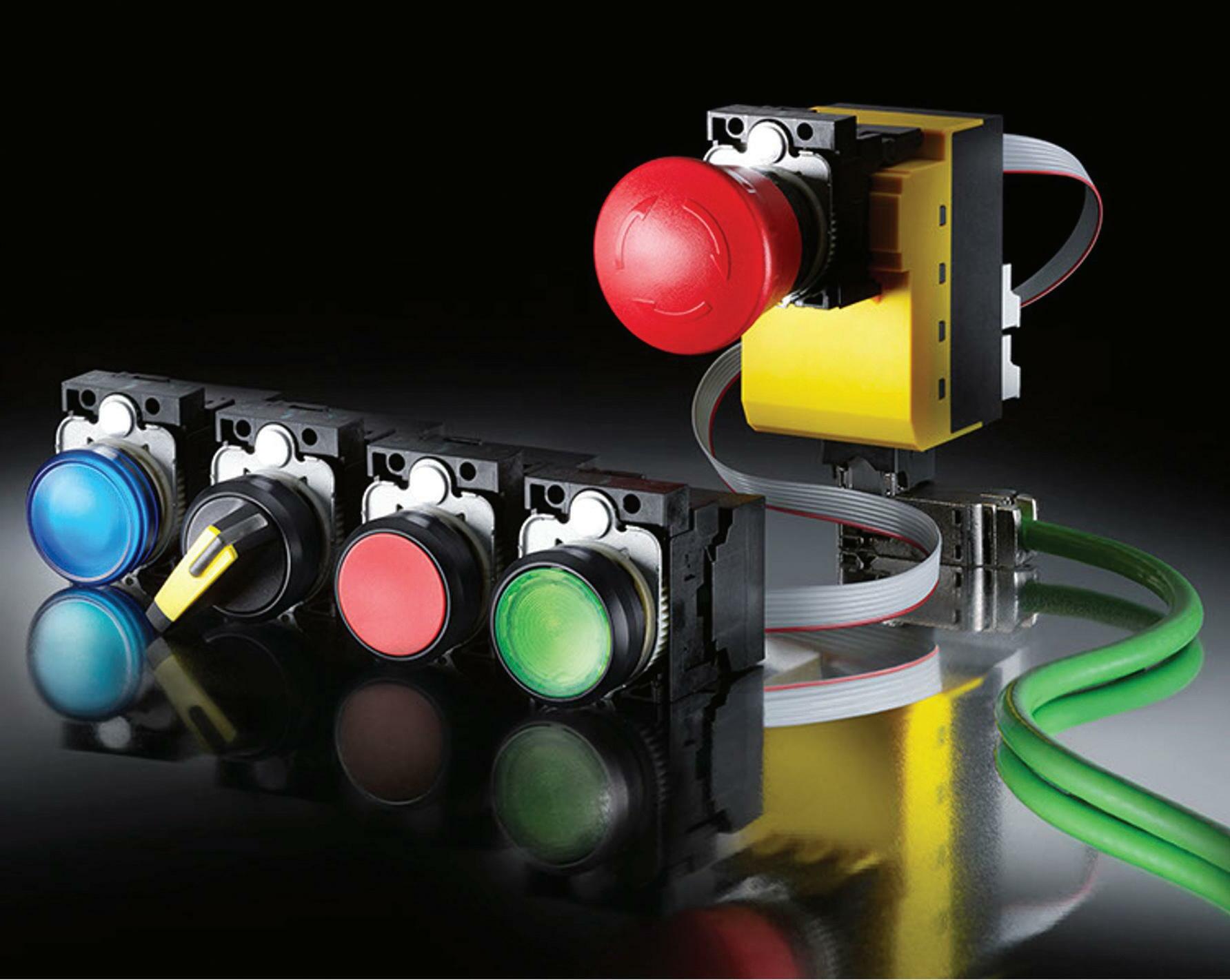
With growing pressure on industry to reduce time-to-market and implement more flexible and efficient production processes capable of delivering at least the same quality levels, quality and reliable product has never been more important. As well as speeding up development operations, businesses also must become more cost-effective to keep pace with competitors. What is more, stricter standards and guidelines are making such challenges even tougher.
With the SIRIUS range of Industrial Controls, APS Industrial and Siemens offer you a unique and comprehensive portfolio that helps you overcome all of these challenges whilst being suitable for every industrial control application.
The range includes everything you will require to control and protect, optimally start motors, command signal and protect, as well as monitor and respond. Below are two featured products within the signalling portfolio.
SIRIUS 8WD46 signal columns
On machines or in automated processes, signal towers are important visual aids for controlling complex processes. Now, so much more than just an on/off light, APS Industrial are proud to bring to market a new range of Siemens SIRIUS signalling columns that revolutionise human-machine communication.
Thanks to their professional signalling technology, the new compact 8WD46 signal column ensures optimal visibility of plant operations and in turn, increase its availability. The new-to-market units reliably signal different states and offer a variety of signalling levels and functions for neverbefore-seen flexibility.
They can be flexibly designed with continuous, flashing, strobe and all-round light as well as acoustic elements. Whether in modular or compact design — they are easy to install and extremely resistant to shock and vibration.
The wide range of signalling variants include: • The individual mode allows to activate each of the segments separately • Multicolour LEDs allow to set more than 1
M colours • Different light effects: Continuous, Blinking (3/2/1 Hz), Flashing (1x/2x/3x), Rotating light (70 RPM) SIRIUS ACT Push Buttons
Powerful machines and plants need powerful push buttons, switches and indicators: SIRIUS ACT offers you a unique portfolio of elegantly designed push buttons, indicator lights and switches that are the perfect embodiment of style, intelligence, and physical toughness.
Constructed with genuine metal and highgrade plastics, and engineered with smart functions and communication capabilities, these new push buttons, indicator lights and switches have been tested for the most extreme environments to ensure reliability for your most critical operations.
SIRIUS ACT is a modular system of push buttons and indicator lights for front plate mounting and rear-mounted electrical modules. It can be flexibly configured to specific customer requirements and features extensive accessories. For common applications, complete devices are offered. • Quick and easy to install • Rugged Reliability • Flexible Communication • Modern Design Lines
APS Industrial www.apsindustrial.com.au
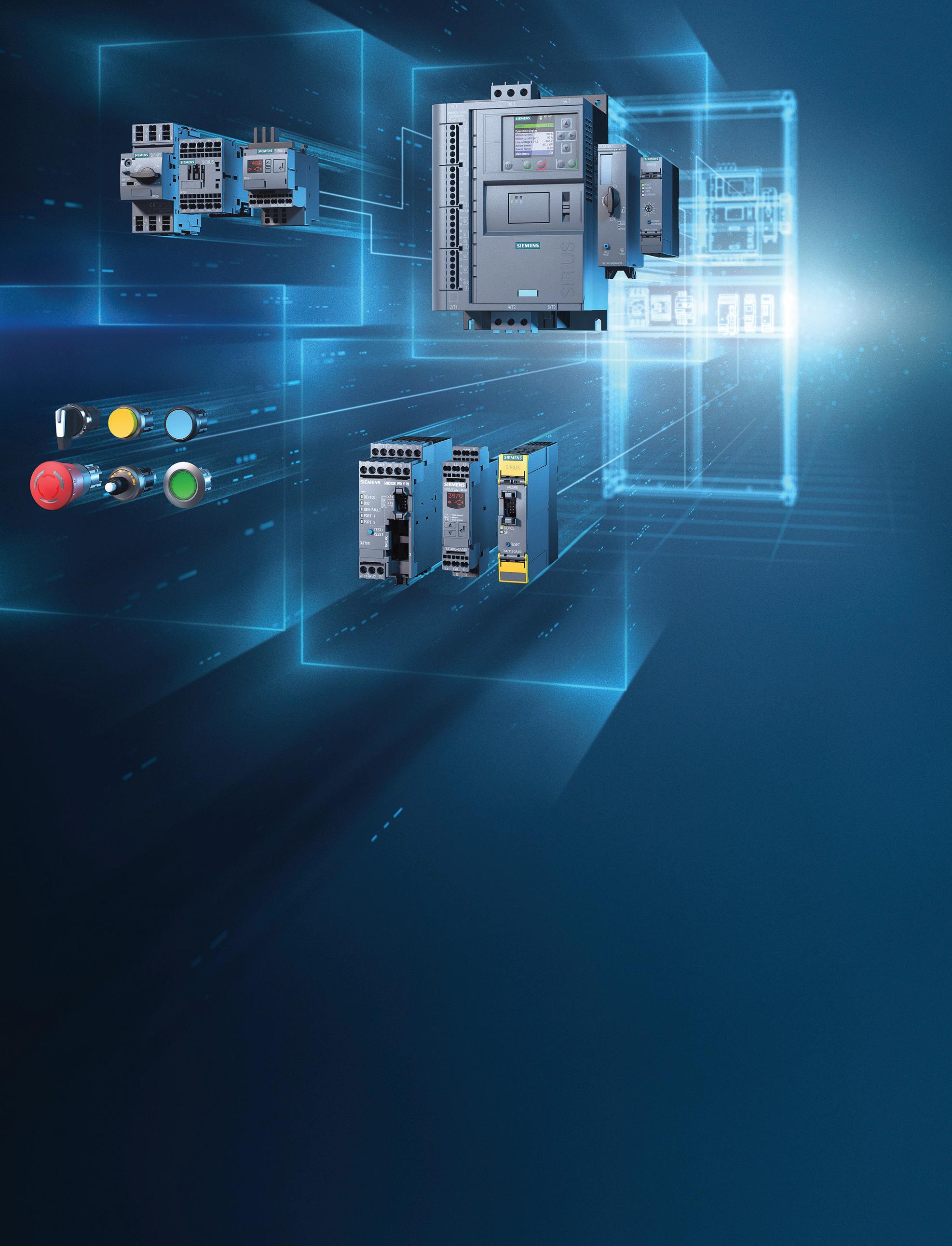
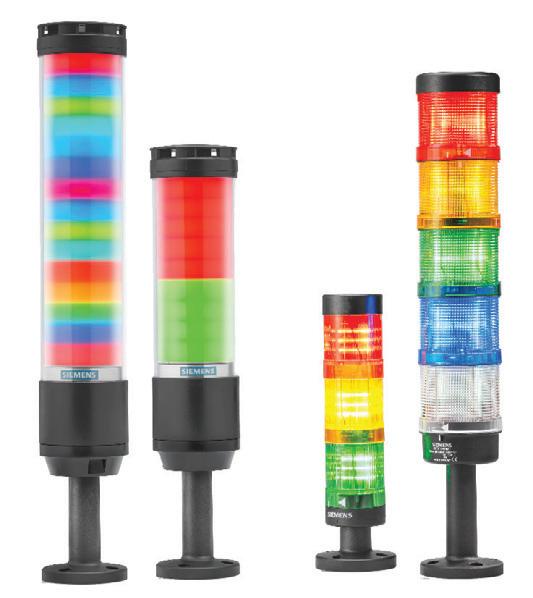
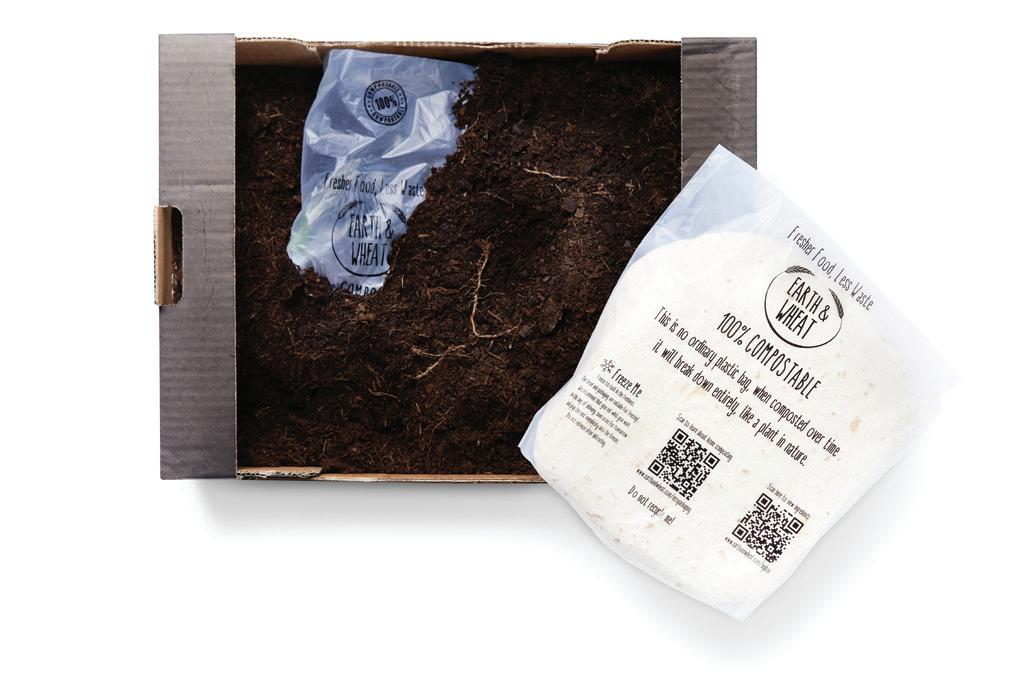
Wonky bread wrapped in compostable bags
Earth & Wheat was looking for a home-compostable bag for its ‘wonky’ bread box and found a solution from KM Packaging.
Earth & Wheat is an e-commerce operation that directly connects UK bakeries with customers looking to reduce food waste. It delivers perfectly tasty fresh bread that would otherwise have gone to waste due to appearance standards or overproduction while also aiming to reduce plastic waste and carbon emissions as much as possible.
The company was using plastic bags, which were considered incompatible with the brand’s values.
The home-compostable bags from KM Packaging not only meet the eco-friendly and sustainable attributes but also other requirements from the company. These included being able to print on the bag for branding purposes and for the bags to be compatible with the company’s automated bagging machines.
The C-Bag from KM Packaging’s C-Range has been developed in partnership with Treetop Biopak. The bio-plastic packaging has similar properties and look and feel to conventional plastic and includes shrink wrap, stretch wrap, cling film, adhesive tape and nets.
Earth & Wheat founder James Eid said: “Our mission is to reduce food waste in the UK, and we’re always looking at innovative ways to become even more sustainable. By using homecompostable bags in our bread boxes, we have found a great alternative to using plastic.”
The new bag protects, presents and preserves the wonky bread from Earth & Wheat. It will disintegrate in a compost heap and then biodegrade into carbon dioxide (CO2), water and biomass, leaving no harmful residue behind.
The bio-based bag is made from renewable resources using versatile materials supplied in various grades and meets the Soil Association Standard for packaging materials. It has TÜV certification, which was developed to guarantee complete biodegradability in garden compost heaps and other slowerpaced processes. It also has good impact, puncture resistance and material perforation, and can be used as bin liners for organic waste collection.
KM Packaging Services Ltd www.kmpackaging.com
CASE STUDY
Boosting recyclability in the freezer section
Image credit: Parkside Flexibles
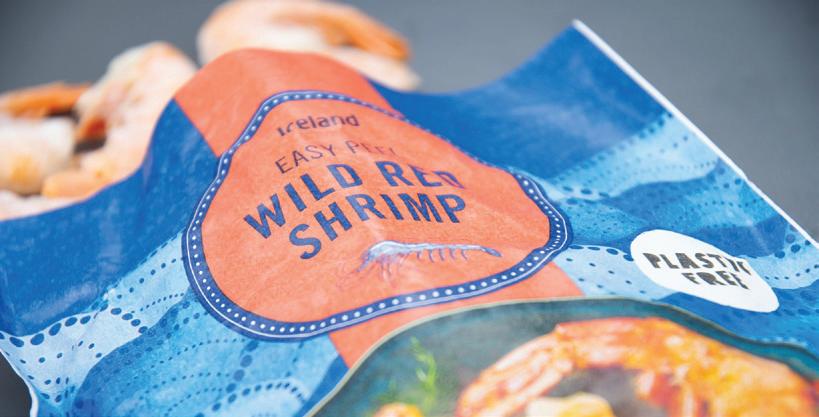
Parkside Flexibles has produced a paper recyclable frozen food packaging option for UK supermarket Iceland, which is using the packets for its Northcoast range of frozen seafood.
The supermarket chain had previously used an LDPE-plastic bag that could not be properly recycled. The new version uses a specially developed paper pouch that is grease and oil resistant and is designed to be suitable for freezer temperatures.
Typically, a laminate of paper with a thin plastic layer is used for this kind of frozen food where oil is inherent to the product. This offers protection against leaks but a major downside is that it complicates the recyclability of the packs.
The heat-sealable paper solution was designed to withstand the rigours of frost and moisture in a freezer environment, for prolonged periods of time. This has been achieved by creating excellent heat sealability, and by using a range of water-based coatings with high barrier performance, which are designed to break down when re-pulped in the paper recycling process.
Mark Armstrong, Packaging Specialist at Iceland, said: “As everyone knows, we are loud and proud about our forwardthinking ideas and commitment to plastic-free packaging across our products. We previously worked with Parkside in a successful bid to reduce food waste via a lidding film solution in 2017.
“But we know we can do more. As consumer sentiment continues to grow for circular solutions, it is the perfect time to collaborate once again in a bid to reduce unnecessary plastic in our packaging.
“Bag sealing was a challenge, as was ensuring the material had the necessary barrier properties. We also wanted the print to match the existing LDPE bag and therefore a lot of time was spent in artwork and repro to give us the best possible result.”
Parkside www.parksideflex.com










